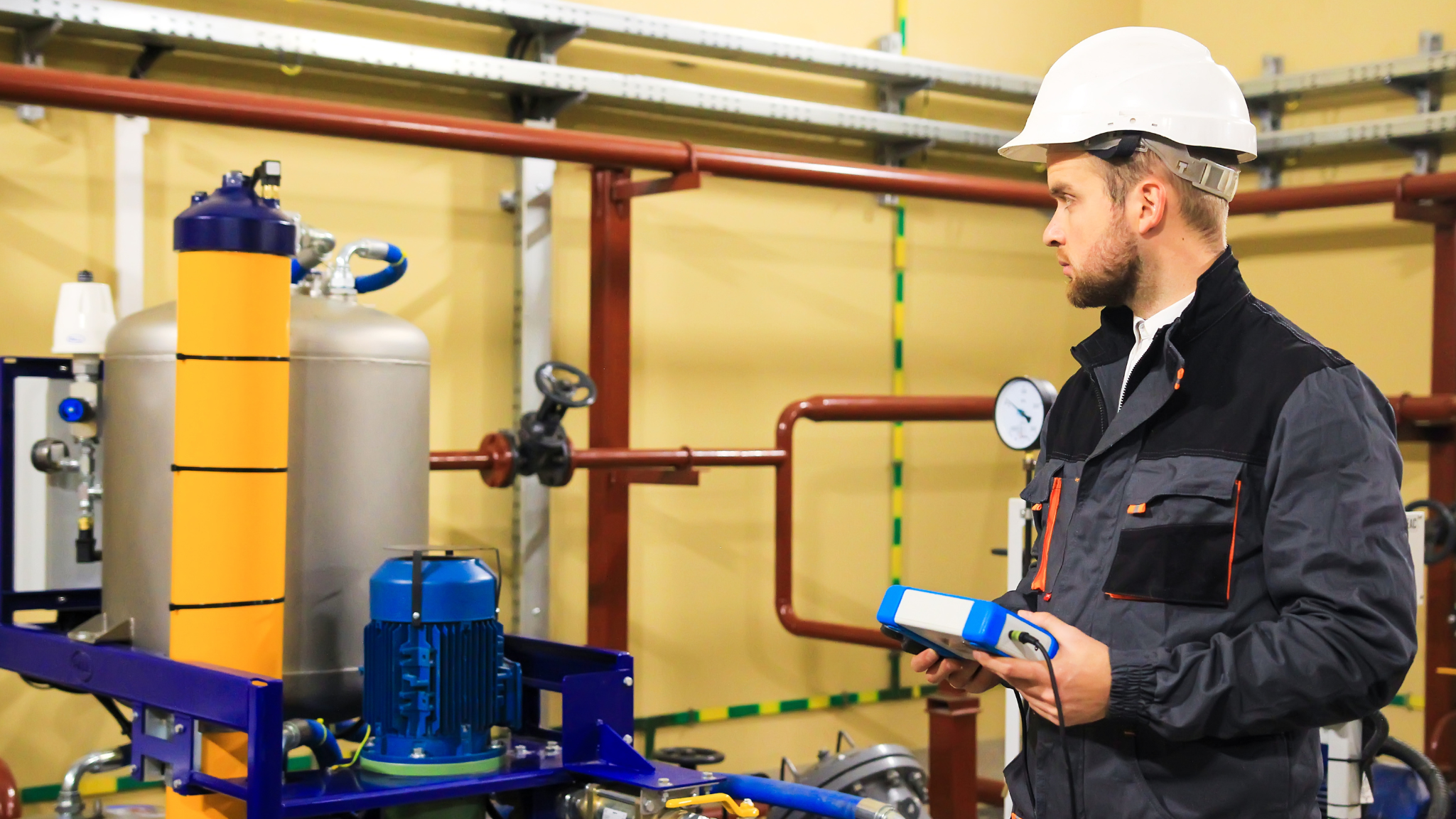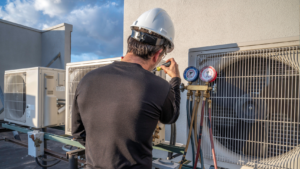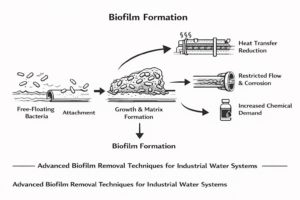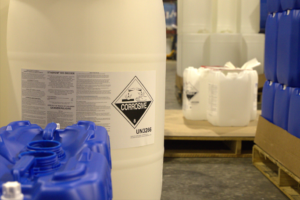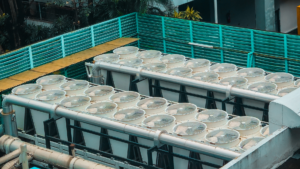For hotels, water (aside from utility) is a foundational service tied to every guest experience and operational function. From drinking water in the lobby to the steam in the showers, water touches nearly every aspect of a hotel’s daily operations. This makes the importance of water treatment in hospitality not only a matter of quality but also of safety, reputation, and long-term sustainability.
In today’s hospitality landscape, hotel managers must ensure that guests have consistent access to clean and safe drinking water while also protecting staff, infrastructure, and the environment. Poor water quality can result in serious consequences, including illness outbreaks, system failures, and costly legal or regulatory challenges. It can also tarnish guest satisfaction and online reviews—two critical metrics for success in the industry.
Meanwhile, as water scarcity intensifies in many regions and aging infrastructure becomes more vulnerable, proactive water treatment is no longer optional. It’s essential. The right approach helps reduce the risk of waterborne diseases, extends the lifespan of equipment, and ensures reliable water supply for all hotel services. In this article, we’ll explore how treating water—both before and after use—affects everything from public health to hotel profitability.
Why Water Treatment Matters in Hospitality
In the hospitality industry, water is directly tied to comfort, cleanliness, and confidence. Guests expect a seamless experience—whether they’re taking a hot shower, drinking from the tap, or relaxing in the pool. Behind the scenes, water is also essential for cooking, laundry, heating and cooling systems, and sanitation. When overlooked, even minor lapses in water treatment can lead to major consequences.
One of the most pressing concerns is the presence of harmful bacteria, bacteria and viruses, or waterborne diseases that can enter the system through contaminated water sources. If untreated or poorly maintained, these contaminants can jeopardize public health, cause severe health issues, and violate safety standards enforced by local or national health departments. In the worst-case scenario, hotels may face closures, lawsuits, or permanent damage to their reputation.
But it’s not just about avoiding risks. Investing in proper water treatment improves the well being of guests and staff alike. Clean, safe water enhances customer satisfaction and supports high-quality service delivery. Moreover, treating and monitoring hotel water reduces wear and tear on infrastructure, helping systems like boilers, pipes, and ice machines function efficiently without the buildup of harmful substances.
Ultimately, water treatment important is not just a health issue, but a business priority. Hotels that proactively manage their water systems build trust, meet regulatory requirements, and protect both people and property in the long run.
Key Hotel Systems Affected by Water Treatment
Hotels rely on complex internal systems that use water for both guest-facing and behind-the-scenes operations. Without proper water treatment systems, these operations can become vulnerable to breakdowns, contamination, and efficiency losses. Understanding which systems are most affected highlights the far-reaching importance of water treatment in hospitality.

1. Potable Water Systems
The drinking water supply in hotels must meet strict safety regulations. Whether water is used for brushing teeth, making coffee, or refilling bottles, it must be free from contaminants that pose a threat to human consumption. Potable water with excess minerals, heavy metals, or pathogens can quickly turn into a liability if not properly monitored and treated.
2. Cooling Systems and HVAC
Chillers and air conditioning systems depend on clean water to function efficiently. Untreated water can lead to corrosion, scale buildup, or microbiological fouling, which not only increases energy costs but can also lead to system failure. Proper treatment ensures cooling systems operate smoothly while preserving equipment lifespan.
3. Pools, Spas, and Recreational Water
Recreational facilities are highly sensitive areas for water quality. Improper treatment can lead to disease prevention failures, including skin, eye, and respiratory infections caused by pathogens like Legionella. Disinfection and continuous water quality monitoring are essential to keep these amenities safe.
4. Kitchens and Food Services
In commercial kitchens, water is used for cooking, cleaning, and sanitation. The presence of dissolved particles or additional chemicals can affect taste, hygiene, and appliance performance. Treating water for food service ensures regulatory compliance and enhances the guest experience.
5. Laundry and Housekeeping
High-mineral water can leave residues on sheets and towels and reduce the effectiveness of cleaning agents. Proper filtration and softening can protect linens, reduce detergent use, and extend machine life.
Across all these systems, clean water is critical to hotel operations. The ability to deliver safe, consistent, and aesthetically pleasing water is a direct reflection of a hotel’s quality and commitment to human health.
Common Contaminants and Water Treatment Processes
Hotels face a variety of water quality threats depending on their location, infrastructure, and water source. These threats include specific contaminants that can affect taste, safety, system performance, and even legal compliance. An effective water treatment process addresses these risks by removing physical, chemical, and biological impurities before they impact operations or guests.
Common Water Contaminants in Hotels
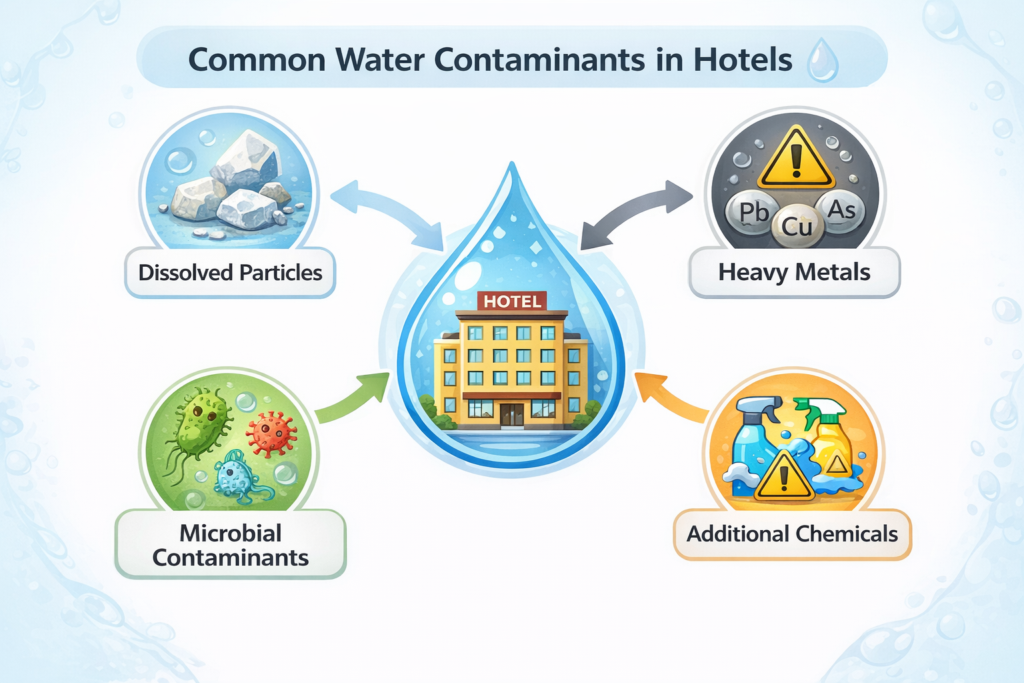
- Dissolved particles: Minerals like calcium and magnesium can cause scaling and reduce the efficiency of plumbing and appliances.
- Heavy metals: Traces of lead, copper, or arsenic may enter through corroded pipes or local water resources, posing a serious risk to human health.
- Microbial contaminants: Bacteria and viruses, including Legionella, E. coli, and Cryptosporidium, can lead to waterborne diseases and outbreaks.
- Additional chemicals: Disinfectant byproducts, cleaning residues, or local agricultural runoff may contain harmful substances that compromise water quality.
Key Water Treatment Methods
- Filtration
Basic filters remove suspended solids and particles that affect clarity and system wear. Carbon filters can also reduce odors and improve taste. - Chemical disinfectants
Chlorine, chloramine, and other agents are used to kill harmful bacteria and sanitize pipelines, pools, and drinking water systems. - Reverse osmosis
RO systems remove dissolved particles and salts, making them ideal for areas with hard or saline water. This high-pressure membrane technology improves safe drinking water access. - Advanced oxidation processes (AOPs)
AOPs combine ozone, UV light, and hydrogen peroxide to degrade organic pollutants and break down chemical residues that conventional methods may miss. - Water purification combinations
Many hotels use a multi-barrier approach to ensure effective water treatment, integrating several processes to tackle a wide range of contaminants at different stages.
By implementing these solutions, hotels maintain high water quality, protect aquatic life and ecosystems through safe discharge, and ensure the well being of everyone on the premises.
The Role of Hotel Wastewater Treatment in Operations
While incoming water must be clean and safe, what leaves the hotel is just as important. Hospitality facilities generate large volumes of wastewater daily—from guest showers and toilets to kitchen sinks and laundry systems. If left untreated, this wastewater can pose a serious threat to the environment and public health. That’s why wastewater treatment is a crucial component of sustainable hotel management.
What Happens Without Proper Treatment?
Untreated wastewater carries a wide range of wastewater pollutants, including suspended solids, fats, oils, soaps, pathogens, and chemical residues. Discharging this water into municipal systems or the environment without proper processing contributes to environmental degradation, clogs infrastructure, and risks regulatory violations.
If primary treatment is bypassed or poorly maintained, solids can accumulate and promote biofilm buildup or anaerobic conditions in pipes and drains. These can result in foul odors, backups, or even shutdowns.
Hotel Wastewater Treatment Responsibilities
Larger hotels or resorts—particularly those in remote areas—may be required to operate on-site wastewater treatment facilities to handle their own effluent. Smaller hotels, meanwhile, are typically connected to municipal wastewater treatment plants and must ensure that their discharge meets pre-treatment standards.
To treat wastewater responsibly, hotels may implement:
- Grease traps in kitchens
- Equalization tanks to manage flow variability
- On-site biological treatment units
- Greywater recycling for landscape irrigation or toilet flushing
By investing in reliable wastewater solutions, hotels not only comply with environmental regulations but also support water reuse initiatives and reduce their overall consumption footprint.
Environmental and Regulatory Impacts
Hotels operate at the intersection of guest service and environmental responsibility. When water is poorly treated or mismanaged, the consequences extend far beyond property lines. Discharging inadequately treated effluent can pollute local waterways, harm aquatic ecosystems, and lead to enforcement actions from environmental agencies.
Environmental Concerns
When wastewater rich in excessive nutrients, such as nitrogen and phosphorus, reaches nearby rivers or lakes, it fuels algal blooms that block sunlight and reduce oxygen levels. This phenomenon, known as oxygen depletion, threatens fish and other aquatic life, disrupts ecosystems, and damages biodiversity.
Additionally, improperly managed rainwater runoff from rooftops and parking lots can carry chemicals, oils, and trash into storm drains. Without adequate capture and filtration, these contaminants accumulate in urban areas and downstream environments, creating long-term environmental burdens.
Regulatory Expectations
Hotels must also adhere to environmental protection regulations at the federal, state, and local levels. Violating discharge limits or neglecting regular system maintenance can result in:
- Fines or penalties
- Shutdown orders
- Costly remediation efforts
- Long-term reputational damage
By prioritizing sustainable water treatment, hotels reduce their environmental impact, support regional conservation goals, and maintain operational compliance—all while reinforcing their commitment to the environment and public health.
ETI’s Hotel Wastewater Treatment Services
Hotels face unique water treatment challenges—from kitchen grease and cooling systems to high-volume wastewater and stringent discharge regulations. At ETI, we provide tailored chemical solutions designed for hotel wastewater treatment to help hospitality facilities manage water safely, efficiently, and in full compliance with environmental standards. Our advanced formulations reduce maintenance needs, improve operational resilience, and safeguard guest well-being.
Key ETI Wastewater Solutions for the Hospitality Industry
1. Grease Trap Service & Maintenance Products
Hotel kitchens are major sources of fats, oils, and grease (FOG), which can clog plumbing, generate odors, and disrupt municipal wastewater treatment facilities. ETI offers a full range of biological and chemical grease trap solutions, including:
- Enzyme-based biological grease trap treatments that digest FOG at the molecular level
- Emulsifiers that prevent grease solidification and reduce emergency plumbing incidents
- Odor control agents for food service and hospitality spaces
- Deep-cleaning products for neglected or overloaded traps
These systems improve flow, minimize maintenance costs, and ensure regulatory compliance in hospitality kitchens.
2. Bioaugmentation Solutions
Hotels often generate complex waste streams from kitchens, laundry, spas, and recreational facilities. ETI’s bioaugmentation solutions introduce high-performance microbial strains that:
- Break down tough organic compounds, surfactants, and hydrocarbons
- Reduce sludge production and associated hauling costs
- Improve nutrient removal (nitrogen and phosphorus)
- Maintain biological performance during temperature shifts or load changes
This makes bioaugmentation a reliable choice for hotels using on-site wastewater treatment or water reuse systems.
3. Advanced Coagulant Water Treatment Solutions
Our coagulants support key stages of the water treatment process, especially during clarification. ETI provides:
- Aluminum-based and iron-based coagulants for suspended solids and phosphorus removal
- Organic polymer options for sensitive systems or where reduced sludge production is needed
- Custom blends optimized for hospitality wastewater and primary treatment
These help hotels meet effluent requirements while improving the efficiency of downstream treatment units.
4. Advanced Flocculant Technologies
Flocculants enhance solid-liquid separation by aggregating particles into removable flocs. ETI’s flocculant line includes:
- Cationic and anionic formulations tailored for diverse particle charges
- Powder and liquid options based on hotel system size and equipment
- Products that improve DAF, settling, and dewatering system performance
This reduces dissolved particles, supports compliance, and lowers the cost of solids handling.
5. Heavy Metal Precipitation Solutions
Older buildings and pipe systems in hotels can contribute trace heavy metals to wastewater. ETI’s solutions include:
- Selective precipitation chemistries for metals like lead, copper, and arsenic
- Chelating agents to prevent re-dissolution and stabilize discharge
- Coagulation and flocculation strategies for reliable metal capture
These technologies ensure public health protection, support permit compliance, and reduce the risk of harming aquatic ecosystems.
Why Hotels Must Prioritize Water Treatment
In the hospitality industry, water is more than a utility—it is a direct reflection of a hotel’s quality, safety, and sustainability. From potable supply and cooling systems to kitchen drains and wastewater discharge, every drop plays a role in guest experience, operational efficiency, and environmental responsibility.
The importance of hotel wastewater treatment lies in its ability to prevent severe health issues, extend equipment life, and meet strict compliance standards. Ignoring water quality puts hotels at risk of plumbing failures, disease outbreaks, and costly violations—any of which can quickly damage a brand’s reputation and bottom line.
At ETI, we understand that access to clean and safe water is a basic necessity for hospitality operations. Our advanced treatment technologies and custom formulations are designed to keep water systems running reliably while protecting both people and the planet. When hotels treat water as a strategic priority, they ensure high water quality, long-term value, and peace of mind for every guest who walks through their doors.
Frequently Asked Questions (FAQs)
Why is hotel wastewater treatment essential for hotel health and safety?
Wastewater treatment is essential in hotels because it ensures clear water is safe for drinking, cooking, bathing, and cleaning. Proper treatment removes hazardous substances and contaminants that can lead to illness or poor hygiene conditions. Untreated water can expose guests and staff to health risks, reduce system reliability, and even compromise compliance with public health standards.
What happens if hotels discharge untreated or poorly treated wastewater?
If hotels fail to treat wastewater properly, they risk overloading treatment plants or water treatment facilities with high levels of chemicals, grease, and biological waste. This can disrupt economic growth, damage other aquatic life in local waterways, and cause serious environmental harm. Discharging untreated wastewater may also result in costly regulatory penalties.
How do water treatment plants differ from on-site hotel systems?
Water treatment plants are typically large-scale municipal systems designed to process water for entire cities or urban areas. In contrast, hotel water treatment systems are smaller and tailored to the needs of the facility, especially when managing onsite reuse, pools, or high-efficiency systems. Both types must meet quality standards for treated water, but hotel systems often include additional filtration and disinfection steps for safety and efficiency.
How does poor water quality affect hotel sustainability?
Poor water quality can reduce efficiency, cause corrosion, and increase chemical use. It also increases reliance on external treatment facilities and makes it harder to recycle or reuse water safely. Contaminated rainwater runoff and high discharge volumes affect aquatic ecosystems and rivers, making responsible water use a key part of long-term sustainability and environmental stewardship.
Why should hotel managers prioritize water despite drinking water shortages?
With growing concerns about drinking water shortage and water scarcity, the importance of water has never been clearer. Hotels consume significant volumes daily, so prioritizing treatment and conservation is both a social and operational responsibility. High-quality water treatment not only protects guest satisfaction but also ensures continued access to safe water and contributes to broader sustainability goals.

